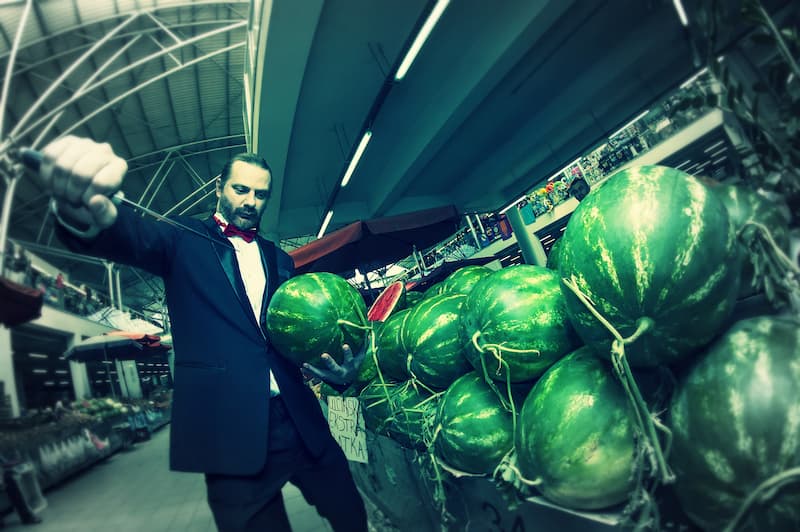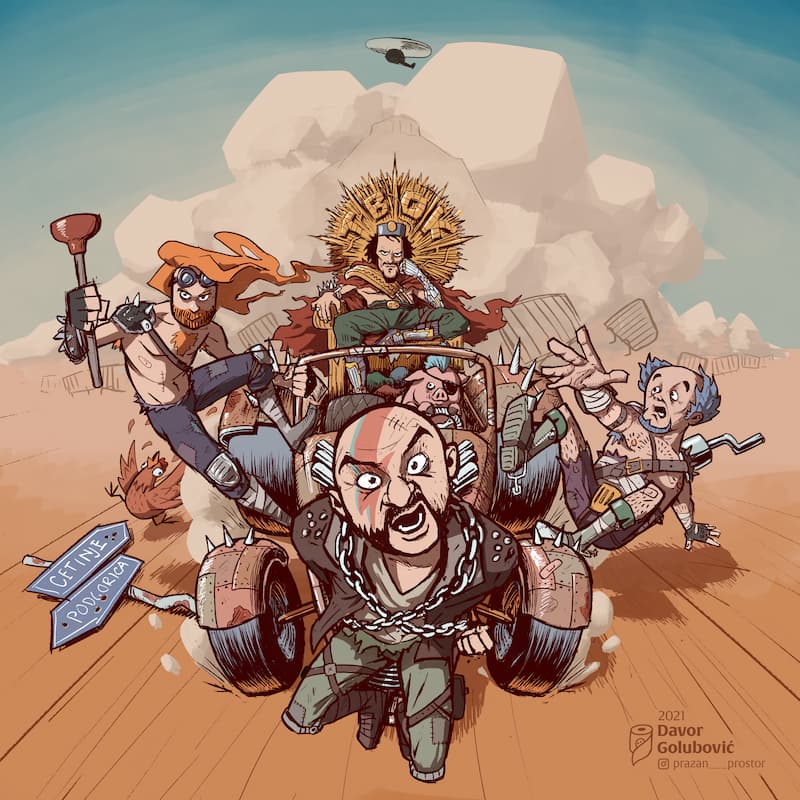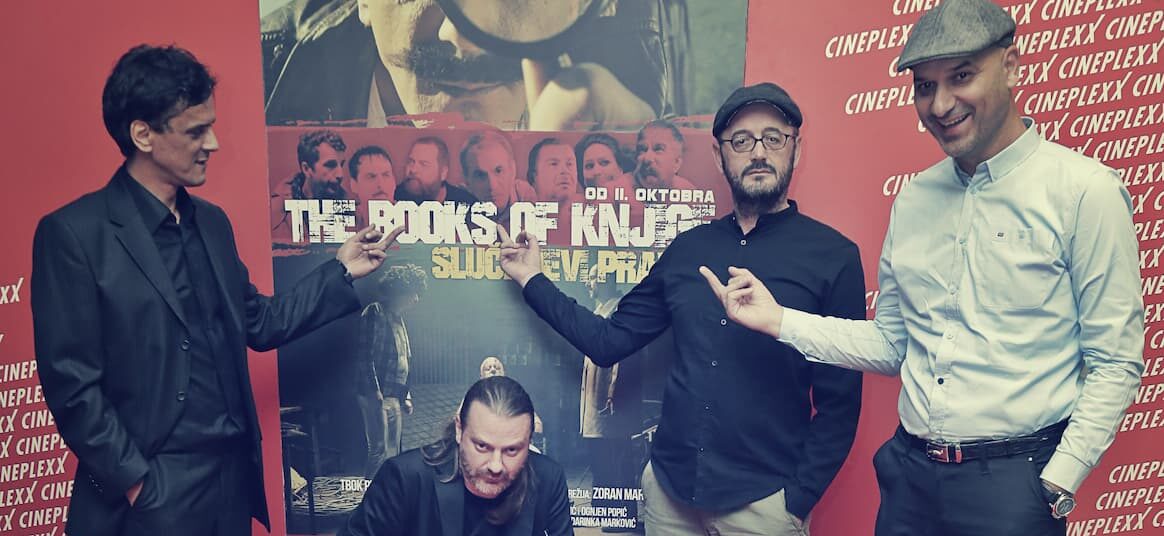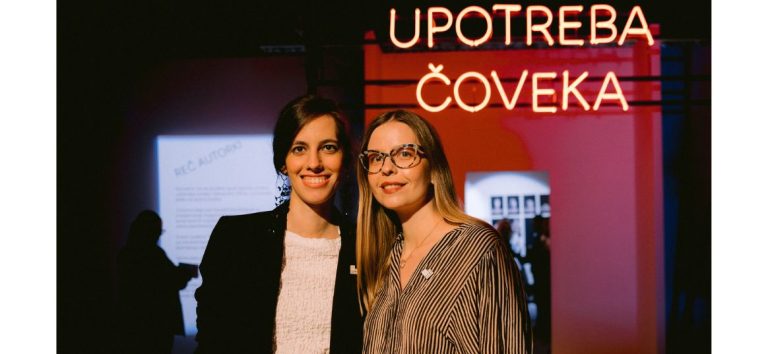The Montenegrin comedians The Books of Knjige have been making the whole Balkan area laugh for the past three decades, and now they are coming to Novi Sad for the Kaleidoscope of Culture, where they will perform as part of the Booktown event at SPENS. The team, famous for its improvisation and satirical portrayal of social situations in the region, is also known to the general public for the feature film The Books of Knjige: Cases of Justice, directed by Zoran Marković ‘Zonjo’, and written by playwright Aleksandar Radunović ‘Popaj’. Two of the four comedians of this comedy group from Cetinje will now speak in front of the Novi Sad audience. As Zonjo says, the other two members – Veselin Gajović ‘Gajo’ and Goran Vujović ‘Goranda’, ‘stayed at home to protect Montenegro from Russian cyber-attacks.’
Visit SPENS on 17 September at 9 p.m., because an evening of laughter and fun awaits you on the Main Stage. Before their guest appearance, we took the opportunity to talk with Zoran Marković ‘Zonja’ about social phenomena that this team cannot keep silent about, and he revealed to us the characteristics of the Balkan mentality, as well as what he cannot imagine the end of the working day without.
At this year’s Kaleidoscope of Culture, during Literature Week, you will be a guest in the European Capital of Culture. What is it like coming to Novi Sad again, and what will the audience laugh at this time? What are you preparing for us?
The last time we were officially in Novi Sad, it was for the premiere of our feature film Cases of Justice in 2017. We had a great time then because the screenings were sold out, which meant that we were not unknown to the audience here. There certainly won’t be any red-carpet glamour this time around and Popaj and I won’t be showing up in some eye-catching dresses, but hopefully, the people who fly down to SPENS on Saturday night won’t be bored. Now, we’re not promising anything funny for this night. It might be romantic actually. Perhaps someone proposes to someone, like at Sergej Ćetković’s concert.
The moderator of your spoken programme will be Nikola Škorić, who is also known for his humour and his role as Dragan Torbica in Government Job. How do you understand the synergy of good humour on stage that you will jointly provide to the Novi Sad audience?
Nikola owes us some money from before. I have no idea if there will be any good synergies.
You have been on stage for three decades and entertain the entire Balkan area with your humorous performances, dealing with the burning issues of our society – censorship, freedom, corrupted government, but also the bad sides of human society. Current events are what inspire you. What are the exact phenomena in society that the four of you can’t help but talk about?
It is abnormal for the stronger to bully the weaker. To provoke, trample, and destroy them. You can see it reflected in the family relationships, attitudes towards the LGBT community, the war in Ukraine, and the relationship between Serbia and Montenegro. The principle is the same. The one who is numerically stronger, richer, or more powerful, should not bully someone weaker than themselves. I think we’ll talk about it for as long as we live. It’s really interesting that in the Balkans there is a lot of appeal to honesty, faith, and family values, yet it’s so easy to throw stones at those who are in the minority.
It’s interesting that you are so active in several different fields – from parody to music, film, and even hosting a radio show beforehand, etc. What has kept the four of you on stage all this time and where did you find inspiration at the very beginning?
Seeing smiles on people’s faces still fulfils us. We have come to terms with the fact that we cannot make a living here from our work a long time ago. We have to do some secondary things that are sometimes complementary and sometimes not, but fundamentally we are still driven by laughter, which is actually the only relevant indicator of whether we are on the right path.

How do the four of you get along with each other and what makes you laugh or annoys you in a second (when working together)?
Our creative discussions are always bloody, but the fact is that we have been operating for thirty years and we still laugh when we work together. People who look at us from the side at those moments probably think we are crazy because the reasons for quarrels can sometimes be quite simple, just as the reasons for laughter are never deep.
In your opinion, how has humour evolved from three decades ago, back when you took your first steps on the stage, to today?
Apart from the fact that people have gotten a little more used to our expression, I think that it is too short a period for anything to have changed significantly. The question is how, say, the old Montenegrins would react if someone launched us into the past, to Njegoš’s time. They would probably not understand us very well, because the language has definitely evolved, and I think we would easily lose our heads over some joke.
How did you decide on the name The Books of Knjige and what does it mean to you?
No one knows how the name came about on the fly and who was the first to say it. I’m afraid it doesn’t mean anything special, except that it’s very interesting from the marketing point of view when someone invites us to a literary festival, as is the case here. It would probably be better to be called The Rolling Stones, but that the name is currently taken.
How would you describe the Balkan mentality?
The Balkan mentality is when you borrow money from someone, and then you get angry with them when they ask for it back. The Balkan mentality is when you think you are important because your relative works as a guard in the government. The Balkan mentality is the confidence that you can fly a plane without a day of training.
What does culture mean to you?
Culture is the opposite of a lack of culture.
Five years ago, a film, which you emphasised was intended to entertain, was released. You touched on all the painful points and gave a psychological portrayal of Montenegrin society. The film was screened throughout the region. What do you think of it now? Do you plan to continue directing?
Not only Montenegrin society is as silly as shown in the film. All the states of the former Yugoslavia seem to be in a state of one endless skit. The amount of absurdity that happens to all of us in real life often exceeds those situations designed for TV and film. When it comes to directing, I consider it my calling, so naturally, I will continue doing it. After all, we are all directors of our lives. Politicians are the best directors out there.

Do you think that nowadays the Internet is dominated by high-quality humorous content? How do you manage to get closer to the younger audience, which grew up with social media, since you don’t use it to that extent?
We have long since lost the motivation to approach anyone. We do what we enjoy and that’s it. And YouTube trending is, as a rule of thumb, always dominated by some idiotic content. Musically, humorously, it doesn’t matter. The simpler, the more popular it is.
What is the wisest thing you have learned in life?
That we shouldn’t lose our minds over politics.
What can’t you imagine the end of the working day without?
I watch chiropractic clips on YouTube. It relaxes me to listen to the crunching of the bones of strangers and their blissful faces of relief after these sessions. Before going to bed, I count my money. It also relaxes me. I usually fall asleep between 25 and 30 thousand euros.
Improvisation or planning, what tends to give better results in life and business?
A combination of the two. You prepare well, and then you adapt to the current circumstances and improvise. And mostly everything goes to hell.
Author: Marina Marić
Photo: Private archive








